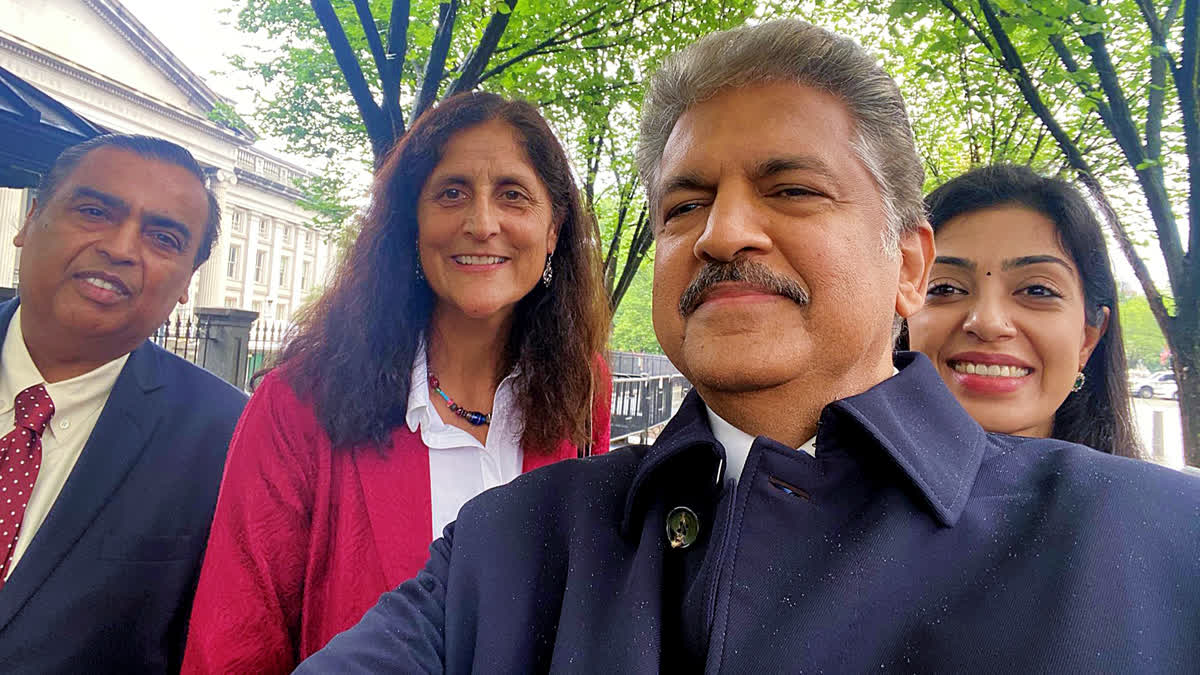Sunita "Suni" Williams is an American NASA astronaut who, at this very moment, is orbiting Earth aboard the International Space Station (ISS). She’s on a mission extended until February 2025 due to some pesky technical issues. A 12-year-old video of her ISS tour has gone viral in India, with comments claiming she’s just returned from her triumphant “127 days in space” as if she were on a high-tech camping trip. And in that moment, like clockwork, Indians everywhere are flocking to the internet to express pride in “our girl.”
The fact is, Suni Williams isn’t an Indian yet Indians can’t resist claiming her. We have an undeniable knack for turning international high-achievers with Indian connections into honorary desis. The late Kalpana Chawla, the first woman of Indian origin in space, remains an icon in India, honoured annually despite her U.S. citizenship. Chawla was born in India, which technically offers India more “rights” to claim her than Williams.
Claiming someone as “ours” gives us a taste of reflected glory, a little shot of pride that says, “Our roots run deeper than we admit.” Rishi Sunak is making policy decisions for Britain, Kamala Harris is U.S. Vice President, and when Suni lands back on Earth in 2025, she’ll be welcomed by NASA and cheered on by her fellow Americans. Yet somewhere, at a family gathering in a small town living room, a middle-aged man with a cup of chai in his hand will point at the news broadcast and proudly say, “That’s India for you!”
Global Achievers
There’s a sense of thrill in claiming tech moguls and Silicon Valley powerhouses as our own. Sundar Pichai sits at the helm of Google, and though he’s lived in the U.S. for years and earned his MBA from the University of Pennsylvania, he still fields questions about cricket, idli, and Bollywood on every trip to India. Satya Nadella, CEO of Microsoft, is often lauded as an “Indian genius” despite running one of the most quintessentially American companies out there. The recent influx of Indian-origin leaders in top tech positions, including IBM head honcho Arvind Krishna and Adobe's Shantanu Narayen, has been met with joy and a sense of “We told you so” by Indians everywhere.
Google CEO Sundar Pichai (ETV Bharat) The Officewriter-actor Mindy Kaling is a powerhouse of creativity who has carved her niche in Hollywood. She’s an icon for her contributions to American TV, yet India eagerly claims her, showering her with the same pride reserved for Bollywood royalty. When Mindy wears a sari to the Emmys or references her Indian heritage in a witty tweet, the applause is audible all the way from Mumbai.
Mindy Kaling receiving the National Medal of the Arts by US President Joe Biden (Instagram) Then there’s Priyanka Chopra Jonas, who has the unique distinction of being both Bollywood and Hollywood royalty. Though she’s cemented her place in global cinema and made Los Angeles her home, every time Priyanka attends the Met Gala or announces a new project, her success is celebrated across India as if she were still the reigning Miss World, representing India on a global stage.
US Vice President and presidential candidate Kamala Harris (Instagram) And who could forget Rishi Sunak and Kamala Harris? When Sunak was announced as the UK’s first British-Asian Prime Minister, memes flooded Indian social media, proudly claiming him as a “son of the soil” despite his distinctly British upbringing. Kamala Harris, with her half-Indian heritage and Tamil roots, became the “first Indian-origin Vice President of the U.S.” in the eyes of Indian newspapers. The fact that she doesn’t speak Tamil and was raised largely in the American cultural milieu doesn’t matter. Her connection to her Tamilian roots is enough for a strong honorary title.
UK PM Rishi Sunak flanked by India PM Narendra Modi and World Bank President Ajay Banga at the G7 Outreach Summit in Apulia (ANI Photo) What’s Next for This Claim Culture?
There’s a deeper logic to this cultural claim game. In a country of over a billion people, seeing even a distant connection to someone who’s achieved international success is like seeing one of your own break free from societal confines and redefine what’s possible. There’s also the matter of “soft power.” By claiming global achievers, Indians feel that their cultural footprint expands, that India’s influence stretches across oceans and into outer space.
There’s no sign of India slowing down in this unspoken national sport. In fact, as more Indian-origin individuals continue to achieve on the global stage, this unique form of “cultural inclusion” is bound to flourish. And you can bet that the next time an “Indian-origin” achiever makes headlines, the Internet will light up with celebration, and living rooms across India will fill with proclamations of pride.
